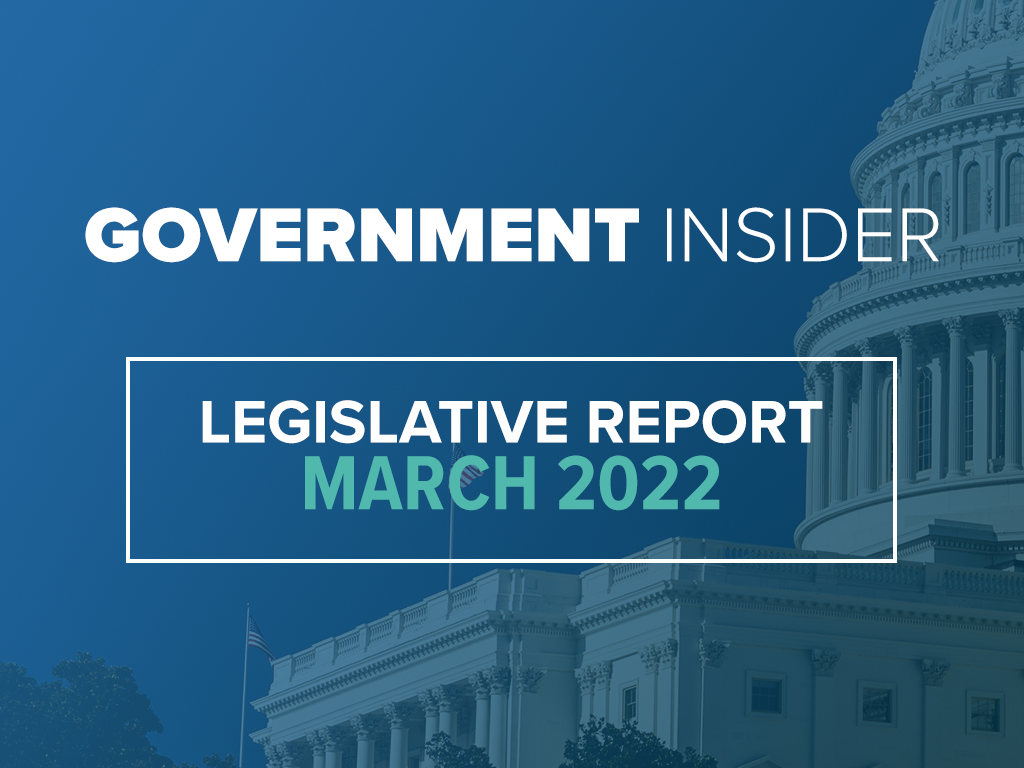Legislative Report March 2022

Here are highlights of legislative activity that could impact the electronic security and life safety industry from March.
Federal Legislative Summary – March 2022
A federal “right to repair” bill was filed on March 14, 2022 that would create a federal law covering this contentious issue. S. 3830 would allow independent repair facilities access to original equipment manufacturers (OEM) proprietary information to diagnose, service and repair digital electronic equipment. This bill would NOT exclude digital electronic equipment that contains electronic security locks or codes. Language in the bill states, “For digital electronic equipment that contains an electronic security lock or other security-related function, the original equipment manufacturer shall make available to the owner and to independent repair providers, on fair and reasonable terms, any special documentation, tools, and parts needed to disable the lock or function, and to reset it when disabled in the course of diagnosis, maintenance, or repair of the equipment.” This bill carries greater significance because it has bipartisan sponsors.
H.R. 4521, The “America COMPETES Act of 2022” passed the House and was forwarded to the Senate in February. At that time, the bill was 3,610 pages. The bill passed the Senate on March 28th and it looks like the bill was reduced to 2,326 pages. This bill would provide more funding related to cybersecurity and it sets up requirements for domestic procurement of certain manufactured goods, but there are over 1,400 fewer pages in the Senate passed version, so the bill will head to conference. It is unknown if any agreement will be reached.
H.R. 7309 would reauthorize the Workforce Innovation and Opportunity Act, which provides much of the workforce development money that flows to states. This is an important issue for all industries and trades that are struggling to recruit and hire qualified skilled labor.
Access the Members-Only Federal Legislative Report
State Legislative Summary – March 2022
As March ended several legislatures moved toward their end of session and pushed through some bills to final passage. Several bills that passed and were signed by the Governor will have a positive impact for the electronic security and life safety industry. They include bills in Virginia, Utah, Wisconsin, Mississippi, and Oregon that incorporate battery-charged fences into alarm licensing statutes and limit local government restrictions on these security systems.
West Virginia S.B 261 will require video cameras in certain special education classrooms, and it was signed by the Governor on March 25th.
Florida SB 1140/HB 669 was sent to the Governor on March 4th and it provides that a person who holds a current National Institute of Certification in Engineering Technologies (NICET) Level II certification or higher in Fire Alarm Systems or Inspection and Testing of Fire Alarm Systems, a current certification as an Electronic Security Association (ESA) Certified Fire Alarm Technician (CFAT), or a current certification as an ESA Certified Fire Alarm Designer (CFAD), he or she is required to complete only the 2 hours of training in the prevention of false alarms required by paragraph (1)(b) from a board-approved sponsor of training and through a board-approved training course.
Other bills that became public law with a potential impact on the industry include Oregon HB 4059, which redefines “large-scale project” for purposes of contractor labor standards.
Tennessee HB 1652 adds consumer protection language that pertains to continuous service contracts. It requires a business that allows someone to sign up for a service or subscription online to provide the option to cancel the service or subscription online without additional steps.
Washington SB 5649 provides for an additional leave following the death of a covered family member or postnatal death of a child under this statute. It also adds provisions related to the availability of benefits and it has reporting and publishing requirements of all employers that have approved voluntary plans under the specified statute.
Kentucky sent SB 176 to the Governor that will create a working group on facial recognition technology. It will require the working group to adopt a model facial recognition technology policy by January 1, 2024.
Utah SB 43 was also signed by the Governor in March. It modifies current alarm company and agent licensing provisions. It removes moral turpitude and criminal history language, and it creates a definition for “responsible management personnel”.
Access the Members-Only State Legislative Report




